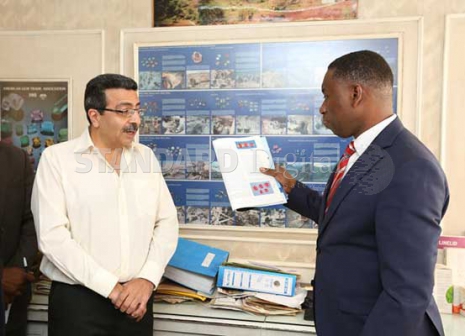×
The Standard e-Paper
Stay Informed, Even Offline

The Government plans to withdraw all mineral trading licences as it moves to weed out illegal operators and regain control of the multi-billion-shilling industry.
Mining Cabinet Secretary Dan Kazungu told The Standard yesterday all dealers would be vetted afresh in a nationwide crackdown set to begin as early as next week.







